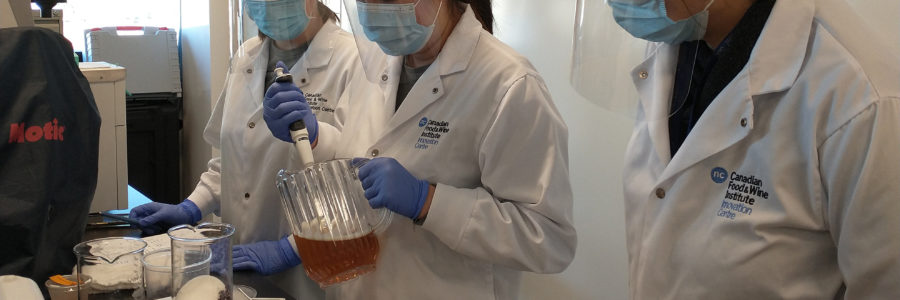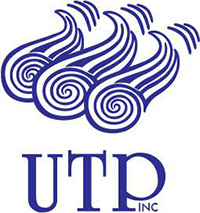For the seventh year in a row, Niagara College has earned the honour of being in the top 10 colleges in the country for research funding.
What’s more, based on the annual ranking released on January 27 by Research Infosource, Niagara College landed in the top 3 for the 2020 study year, based on total research funding. The national study, entitled “Canada’s Top 50 Research Colleges,” shows a steady placement of seven years in a row in the top 10 – including No. 1 in the 2018 funding year – since NC earned spot No. 10 in the 2014 research funding year.
“We are delighted to see this continued recognition as one of Canada’s top colleges in research funding. Research and innovation continues as a key priority for NC, as we deliver value to our community, to industry, to students and our faculty,” said Niagara College president Sean Kennedy. “Our funders see this dedication to innovation at work year after year – and throughout the pandemic – and they continue to invest in us.”
Looking at colleges with applied research funding in Canada, NC earned the No. 3 spot by having attracted $13.9 million in funding to conduct innovative projects involving industry partners in the food and beverage, advanced manufacturing, precision agriculture, and related environmental technologies sectors.
Of all the medium-sized colleges across the country, NC also earned the No. 1 spot in industry research income, as well as No. 1 in industry research income as a percentage of the total research income, at 70.3% or $9.79 million.
For the number of interactions with industry – small- and medium-sized businesses (SMEs) who turn to colleges for expertise and resources to innovate – NC’s total research partnerships was 188, making it No. 3 for medium-sized colleges in Canada. And by completing 278 projects during the study year, NC is No. 2 in that category.
Further, even with the challenges of the remote work and learning during the pandemic, the College managed to earn a No. 5 spot in paid student researchers, with a total of 90 on the payroll.
Marc Nantel, PhD, vice-president, Research & External Relations, noted that NC’s long-standing place in the top 10 research colleges for the country is an ongoing source of pride for the Research & Innovation division. “Our strong industry-education connections help support the applied research needs of industry and, at the same time, link our students and the expertise of our faculty to local business,” said Nantel. “In the past decade, we have significantly increased our specialized equipment and leading-edge lab spaces to attract new partnerships and funding, and it’s paying off for SMEs in our region and beyond.”
Research funding allows the College to partner with SMEs in the region to conduct projects and services, which provide innovative solutions for industry. These include producing and testing prototypes, evaluating new technologies, and developing new or improved products and processes. NC Research & Innovation conducts applied research, technical services and business and commercialization solutions with industry partners through its Agriculture & Environment Innovation Centre, Business & Commercialization Solutions Centre, Canadian Food & Wine Institute Innovation Centre, and Walker Advanced Manufacturing Innovation Centre.
Niagara College also administers the funding for two multi-institutional research networks, including the award-winning Southern Ontario Network for Advanced Manufacturing Innovation (SONAMI), and the Greenhouse Technology Network (GTN).
The College’s innovative solutions have helped one company commercialize Canada’s first non-alcoholic gin product following a product development research project with NC’s Canadian Food & Wine Institute (CFWI) Innovation Centre and industry partner DistillX Beverages Inc. Now sold in more than 20 stores, as well as online, Sobrii Ø-Gin (zero gin) has since received praise in national print, TV and radio media. In fact, the company found itself in the national spotlight in November when it secured a deal to take the product to the next level with a successful pitch on CBC’s Dragons’ Den. What’s more, DistillX is now a repeat NC industry partner. More recently, the company worked with the CFWI Innovation Centre team on a non-alcoholic tequila.
“Expertise from Niagara College’s Research & Innovation division was instrumental to being able to sell a product that was not only superior tasting, but something I can commercially scale and replicate safely,” said DistillX president Bob Huitema. “I think it’s important to support local academic and manufacturing resources as this is a ‘made-in-Canada’ initiative.”
Research Infosource annually compiles listings of the Top 50 research universities, corporate R&D spenders, and research hospitals. This is the eighth year a list has been released for the Top 50 research colleges in Canada. For more information on the Top 50 list, visit researchinfosource.com.
NC’s award-winning Research & Innovation division administers research funding support from various regional, provincial and federal agencies. Students and graduates are hired to work alongside faculty researchers and assist industry partners with leaping forward in the marketplace. Students come from a variety of the College’s programs, such as Mechanical Engineering Technology, Culinary Innovation and Food Technology, Business Administration – Marketing, and Computer Programmer.
Niagara College offers more than 130 diploma, bachelor degree and advanced level programs; as well as more than 600 credit, vocational and general interest Part-Time Studies courses. Areas of specialization include food and wine sciences, advanced technology, media, applied health and community safety, supported by unique learning enterprises in food, wine, beer, distilling, horticulture and esthetics. For more information visit niagaracollege.ca.
Photo: CFWIInnovCentreStudents Research students Myranda Amendola (left) and Alison Wong (centre), conduct applied research work in the beverage lab of the Canadian Food & Wine Institute Innovation Centre, at NC’s Daniel J Patterson Campus, under the expert eye of Ana Cristina Vega-Lugo, PhD, scientific manager of the centre.
 Back to myNiagaraOnline
Back to myNiagaraOnline





















